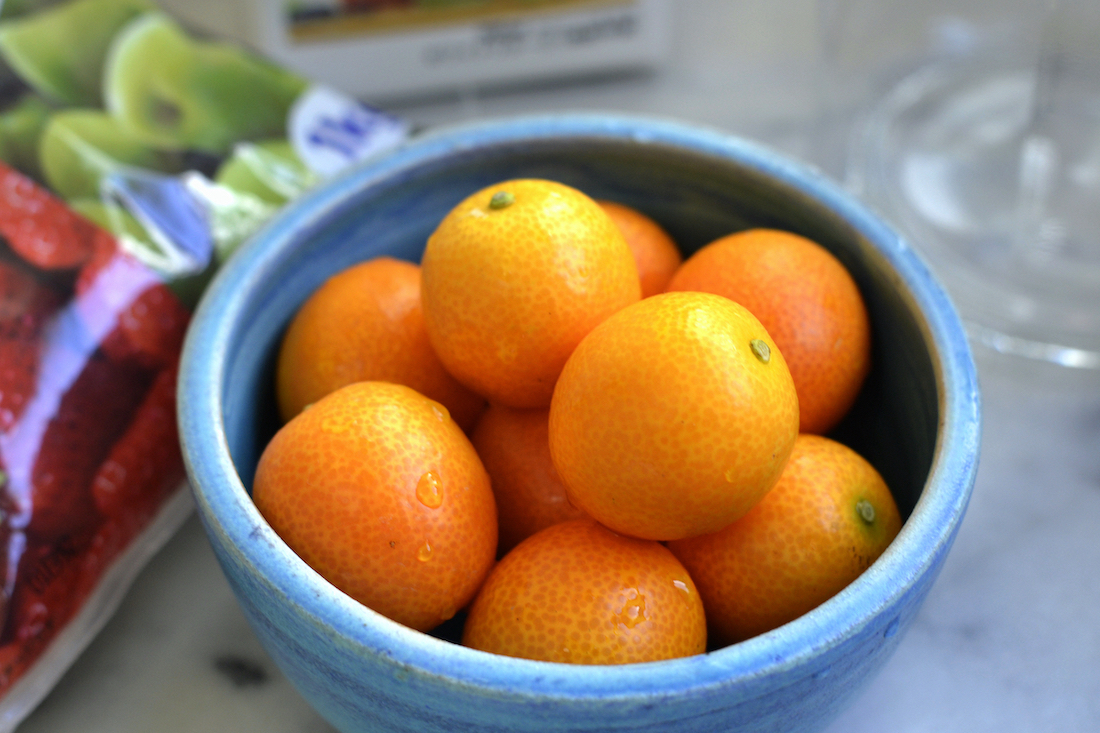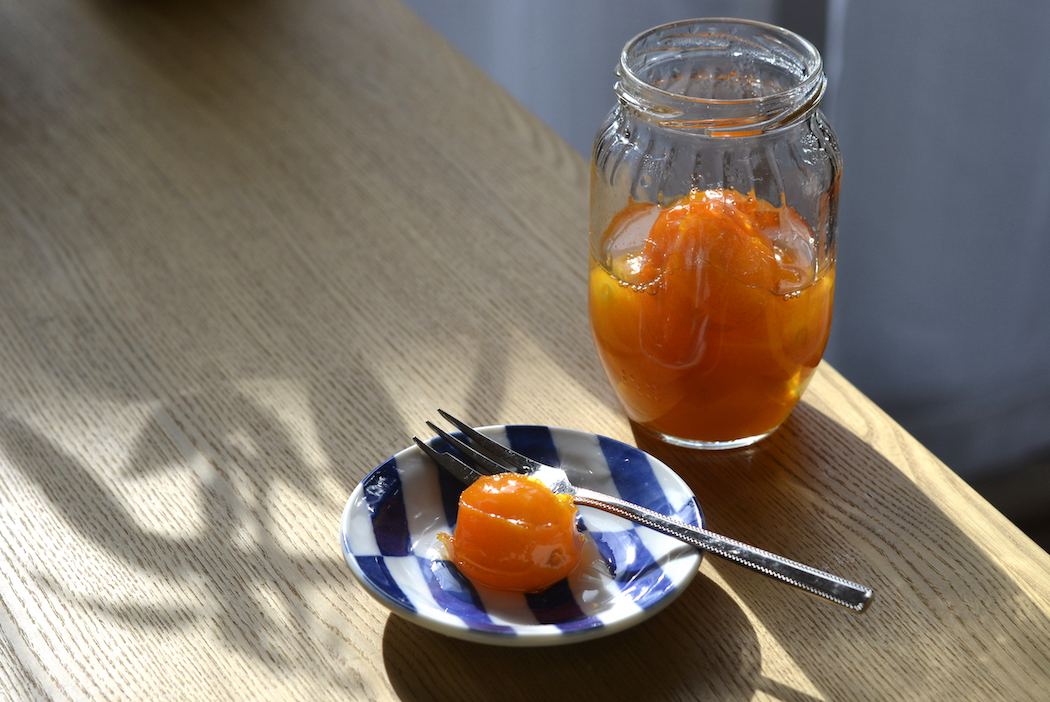Meet the kinkan (kumquat). Tiny, tart and tantalizing… you can get ahold of the small yet mighty kumquat at your local supermarket throughout winter in Japan. Not much larger than an olive, kinkan ranges from two to four centimeters in diameter. But despite their miniature size, kumquats are packed with flavor and nutrition; and unlike other citrus fruits, they’re often enjoyed whole—skin and all.

Eaten raw, the thin, crunchy peel yields easily to the teeth, the orange orbs bursting with tangy juice. Fragrant oils spray the air, releasing a delicate floral aroma from the pores of the fruit’s sweet, lustrous skin.
When boiled with sugar, kumquats become tender and glossy; the process of tempering the sourness of the fruit’s flesh and preserving its fragrance in thick nectar. A versatile topping for everything from yogurt to pancakes, we share a simple recipe for kumquats in syrup below.
But first, a little background on the tiniest citrus fruit.
Kinkan: An auspicious Japanese New Year food

Known as kinkan no kanroni in Japanese, candied kumquat is a sweet treat, home remedy and palate cleanser rolled into one—which helps explain its popularity among osechi ryori (Japanese New Year cuisine) dishes. It’s the equivalent of eating cranberry sauce at Thanksgiving, with a bright, acidic flavor that cuts through the otherwise heavy (and rather brown—at least in the case of American Thanksgiving) meal.
Like other Japanese New Year foods, kinkan has a symbolic meaning that involves wordplay. Kinkan (金柑 “kumquat”) is a homonym of kinkan (金冠), or “golden crown.” If you want to attract wealth in the New Year, a kumquat might just be your golden ticket!
Kinkan is also an auspicious food to eat during the winter solstice in Japan. During this time of year, it’s said that eating foods with two letter n’s (ん and ン in hiragana and katakana) in their names attracts luck. Besides kinkan, this includes foods like ginnan (ぎんなん gingko nuts), ninjin (にんじん carrots) and renkon (レンコン lotus root).
Kumquat health benefits
Click here to read more.
- External Link
- https://savvytokyo.com/
 Take our user survey and make your voice heard.
Take our user survey and make your voice heard.




5 Comments
Login to comment
wallace
Soak them in alcohol and leave for a few months.
Hercolobus
I love Kinkan.
1glenn
I grew them when I lived in a warmer climate. Best when picked off the bush.
Pukey2
They're nice, but, my god, why do they have to be so expensive in Japan?